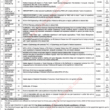Selling your house can be quite a journey, often fraught with uncertainty and complications.
Whether you’re facing a life-altering event such as a family member’s passing, a challenging divorce, or rising debts, the traditional real estate market may not always provide the quick and hassle-free experience you need.
In these times, selling your house for cash can be a viable alternative, bringing relief to your financial and emotional burdens.
“When you sell your house for cash, you make a phone call or answer some questions online, agree to an offer, and then it’s not something you have to worry about anymore,” explains Doug Van Soest, owner of SoCal Home Buyers, a house flipping company based in Southern California.
“Plus, you’ll save money on things like commissions, repairs, and closing costs.”
But is selling your house for cash really a good idea? Let’s delve deeper into what it means to sell a house for cash, the advantages and disadvantages of this approach, how to go about it, and where to seek a cash offer.

Fast Selling Process
Will I get a fast closing if I sell my house for cash? Absolutely yes. One of the fastest processes of selling a house is when a cash buyer is involved. You have probably seen signage from companies that promise to buy houses for cash instantly.
Many of them buy in under 21 days, especially if you accept the cash offer immediately. This option is best if you are new to house sales, need money urgently, or need to relocate immediately.
Few Costs or None
Many cash buyers promise their clients that they will not incur unnecessary costs when they consider selling their houses to them. This option typically eliminates costs related to repair, appraisals, and the like. If you check more info here, you can make informed decisions.
Like Us on Facebook!
The cash buyer will also take care of the few costs related to the closing process, making this a great option if someone is already financially strained. So, can I sell my house for cash without incurring costs? Yes, you can.
Subscribe Us on YouTube!
More Convenience
The first two benefits can tell you that selling a home to a cash buyer is very convenient. It takes a short time and eliminates costs, so the seller is not required to do a lot on their side.
Whether you want to relax as the closing process takes place or have other urgent things to take care of, selling your house for cash is a great option. It is also a good option for selling old inherited properties without a hassle.
How do I sell my house for cash conveniently? All you need to do is choose a reliable cash buyer that will take care of all the processes.
Instant Money
Do you need money urgently? Whether you have an emergency or just need money for liquidity, consider selling your property for cash. Instant cash buyers pay almost immediately after you accept the cash offer, as opposed to mortgage buyers where you need to wait for long appraisal and approval processes.
It Is a Sure Process
Can I be sure of a successful sale when I decide to sell my house for cash? Absolutely yes. It is rare for a home selling process to fall through if you sell it to a reliable cash buyer. These companies have enough liquidity to buy all properties regardless of their status.
Understanding Selling a House for Cash
When you decide to sell your house for cash, it means you are selling it to a buyer who can make the purchase without relying on a mortgage loan. In essence, they need to have the full purchase amount readily available in a bank account or equivalent form. Typically, this process involves working with a unique type of buyer, one that specializes in off-market homes, such as those in need of repairs or available at a discounted price. While some traditional buyers can pay in cash, they are relatively rare, with 78% of recent buyers opting for financing, according to the National Association of Realtors.
To ensure a successful cash sale, you’ll need to engage with a house-buying company or an individual investor who has the financial resources to complete the transaction. Following an evaluation of your property and a formal offer, the buyer will wire the agreed-upon sum to your account during the closing. Rest assured, you won’t be handed a suitcase filled with bills like in the movies; the funds will be securely transferred electronically.
Cash investors typically offer anywhere from 50% to 70% of the market value, while iBuyer companies might extend offers of up to 90%, contingent on the property and local market dynamics.
In the words of Mark Abdel, a seasoned real estate agent, selling for cash takes the stress off the seller. It simplifies the process, allowing you to bypass the complexities that often come with traditional real estate transactions.
Reasons to Sell for Cash
Selling your house for cash has several compelling benefits:
- Faster Closing: Cash transactions typically close much faster, often within a week or two, compared to the months it takes in a non-cash sale, where mortgages can lengthen the process.
- No Repairs or Home Staging: If your house requires significant repairs or isn’t in top-notch condition, you might struggle to find a traditional buyer. Cash buyers often purchase homes “as is,” sparing you the expense and hassle of repairs and staging.
- Reduced Closing Fees: Many cash-for-homes companies are willing to cover the full closing costs, which can be as high as 9% to 10% of the sale price in a traditional transaction.
- Smaller Holding Costs: As long as you own a property, you’re responsible for ongoing costs like utilities, taxes, insurance, and maintenance. A cash offer can relieve you of these expenses, especially if your property lingers on the market.
- Peace of Mind: Cash sales provide peace of mind, offering financial certainty without the typical contingencies tied to financing and appraisal processes. This can be particularly beneficial for homeowners facing life challenges like the loss of a family member, mounting bills, or costly repairs.
- Interest Rate Immunity: In a market with rising interest rates, selling to a cash buyer eliminates the uncertainty of loan approval. Buyers with cash on hand aren’t affected by interest rate fluctuations that can cause delays or cancellations in mortgage-backed deals.
- Flexibility: Cash sales offer flexibility in terms of move-out dates, allowing you to choose the timeline that suits your needs.
The Cash House Sale Process
Selling your house for cash entails a different process compared to the traditional agent-assisted sale. Here’s a side-by-side comparison of the two approaches:
- Timeline: Cash sales can close within as little as seven to ten days, whereas a traditional sale often takes an average of 61 days.
- Home Prep and Repairs: Cash sales typically require no repairs or preparations, whereas traditional sales involve necessary repairs, cleaning, decluttering, landscaping, and staging.
- Showings: While cash sales don’t involve conventional showings, buyers may collect information or request photos and videos. Traditional sales often entail multiple showings.
- Inspections: Cash buyers may perform an inspection or onsite evaluation depending on the company’s practices. In a traditional sale, inspections may trigger repairs or price renegotiations.
- Appraisal: Cash buyers may or may not require a traditional appraisal, but a mortgage-backed sale always demands one, typically taking 8-10 days.
- Title Search: Cash buyers conduct a title search to ensure a clear property transfer. In traditional sales, title issues must be resolved before closing, often causing delays.
- Financing Contingency: Cash sales don’t involve financing contingencies, which are prevalent in mortgage-backed transactions and can lead to deal delays.
- Closing Costs: Many cash-for-homes companies cover the full closing costs, whereas traditional sales involve a range of costs, including agent commissions and title insurance.
- Getting Paid: Cash buyers often swiftly wire the funds to your account. In contrast, traditional sales may require 49 days on average before you receive your money.
Who Buys Houses for Cash?
Cash buyers can be broadly categorized into different groups, each with distinct approaches:
Investors:
Buy-and-Hold: These investors purchase homes to build wealth. Some flip homes for a profit, while others convert them into rental properties. They typically pay in cash.
House Flippers: House flippers buy homes, often in poor condition and at lower prices, intending to renovate and resell them for a profit. They continue to play a significant role in the cash house-buying market.
How to Find Reputable Cash Buyers
To locate reputable cash buyers, you can use trusted platforms. They connect you with a vast network of cash buyers, providing no-obligation cash offers for your property. These partners use a range of investment strategies, such as flipping or buy-and-hold.
By providing some details about your home and your desired selling timeline, you can receive a cash offer in as little as a week, with the potential to close the sale within 10 days.
The Downsides of Selling for Cash
The main disadvantage of selling your house for cash is that you might receive a lower offer compared to traditional sales. Cash buyers often offer less because they factor in the costs of potential repairs and renovations. They aim to obtain a reasonable return on their investment, which can mean that the offered price is around 10% to 15% lower, on average, than the market value.
In Conclusion
Selling your house for cash offers a range of advantages, such as speed, convenience, and peace of mind. If these aspects align with your priorities and circumstances, it can be an excellent choice.
While you may receive a lower offer than in a traditional sale, the benefits of a quick and straightforward transaction often outweigh the cons.
However, it’s crucial to deal with reputable cash buyers to ensure a secure and efficient transaction. Whether you choose to sell for cash or through traditional methods, the choice ultimately depends on your unique needs and financial goals.
With the information and options available to you, you can confidently make the right decision for your situation.














